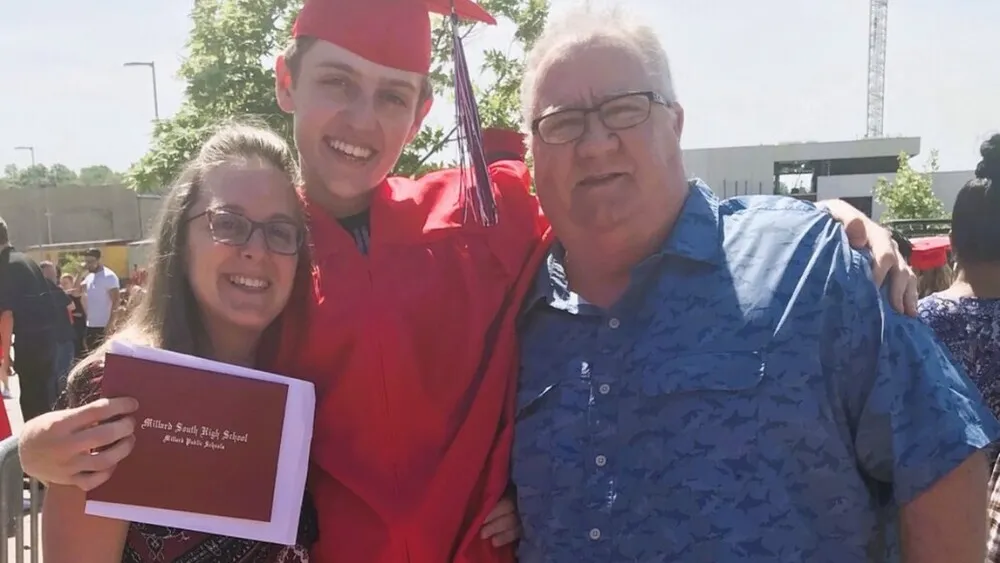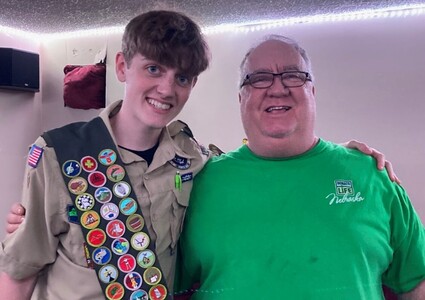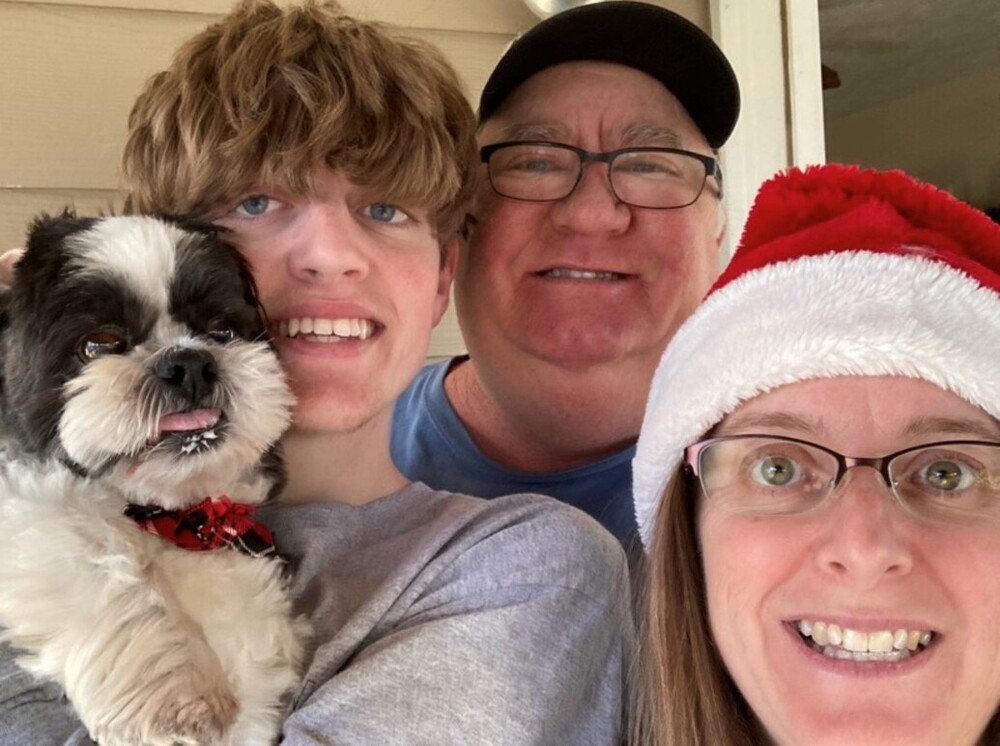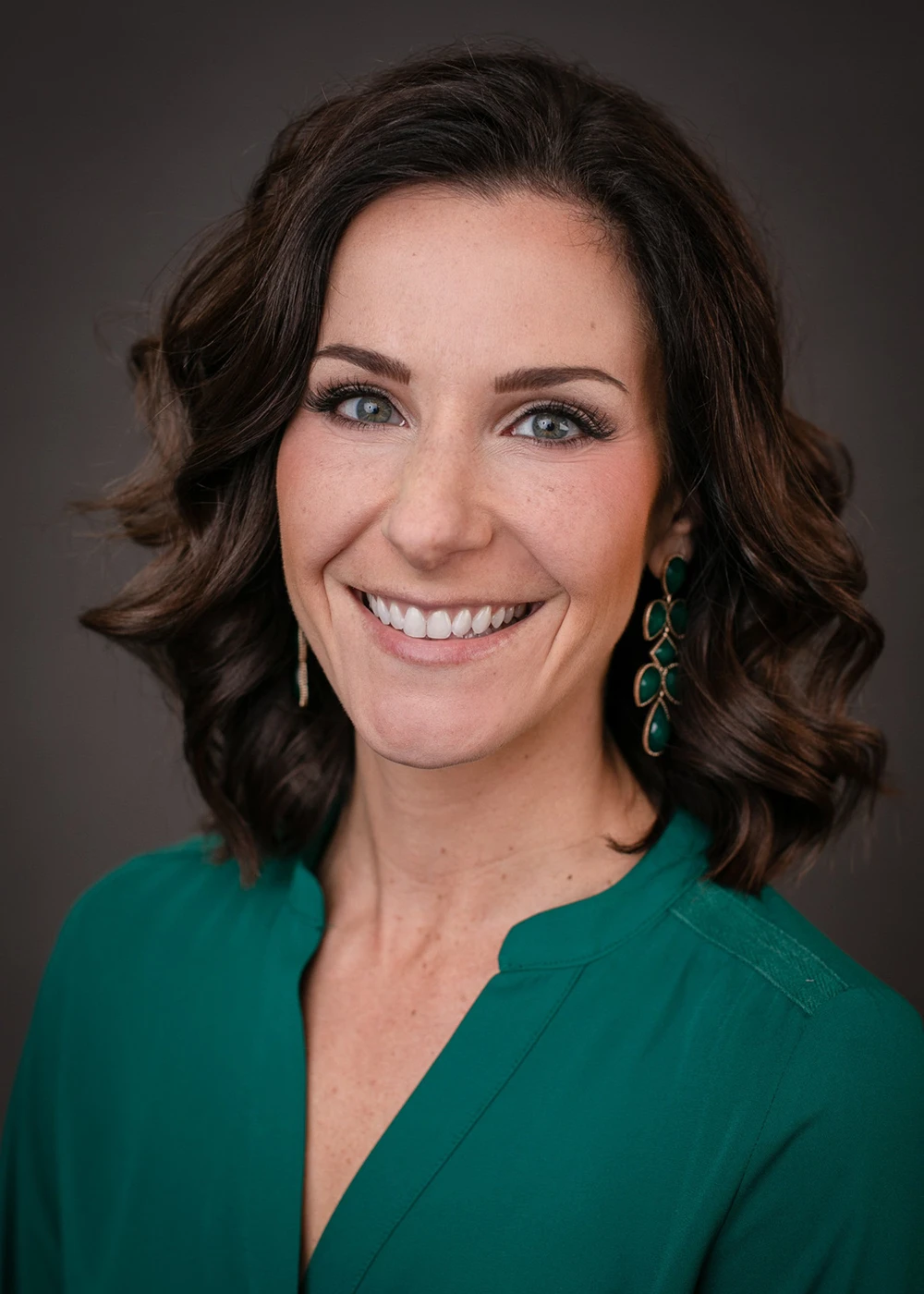





Inspiring Stories
‘What She Needed Most’: Primary Care Physician Uses Follow-Up Appointment To Comfort Grieving Patient
Published: Dec. 14, 2022


“My whole family was taken that day, and it’s been a living nightmare ever since.”
Although she’s finding things to be grateful for, Becki Coleman still has “breakdown moments” when looking back on Aug. 31. That’s the day she came home from work to discover that her husband, her 18-year-old son and her son’s friend had passed away from carbon monoxide poisoning. Becki also lost her dog that day.

“It just breaks my heart,” she said. “So many things. So many questions. What if? What if? What if?”
She recalls trying to perform CPR before rescue crews arrived. The last thing she remembers?
“I heard someone saying, ‘Get her out of here!’”
“My Empathy Kicked in Right Away”
Becki was treated for carbon monoxide poisoning at a nearby hospital, where she eventually received hyperbaric oxygen therapy.
“With that, the air pressure is higher than normal, which speeds the replacement of carbon monoxide with oxygen in the blood,” said Carey Ertz, DO, Becki’s primary care provider at Methodist Physicians Clinic. “It just helps to get that out of her system faster.”
Becki required a follow-up appointment with Dr. Ertz after her hospitalization. But based on Becki’s records, Dr. Ertz knew her patient had already made a full recovery – at least physically.
“Her carbon monoxide levels were back to normal,” Dr. Ertz said. “There really wasn’t anything I was going to have to fix for her at that point.”
Still, Dr. Ertz carved out extra time for that appointment.
“Even though her health issue had resolved, I knew that she was going to need a lot of emotional support moving forward. I knew that listening to whatever she wanted or needed to tell me was probably what she needed most at that appointment.”
Dr. Ertz was right.
“I didn’t say very much,” Becki said. “But she understood that. She was just very kind. She gave me a hug and took the time to see what I needed. She was just there. Just the sincerity – seeing that and feeling that. It seems like a little thing, but it was so helpful.”
“My empathy kicked in right away,” said Dr. Ertz, a wife, mother and dog owner. “There were points I had to hold back tears because I didn’t understand how she was coping. Here she is having to come in for a doctor’s appointment while still grieving, and I just wanted to comfort her and let her know that I was there for her if she needed anything.”
Providing Personalized, Compassionate Care
Becki continues to attend weekly counseling sessions, which are helping, she said. She’s noticed particular improvement with eye movement desensitization and reprocessing (EMDR) therapy, which is especially beneficial for individuals dealing with post-traumatic stress disorder – or PTSD. It involves focusing on the past, present and future.
“There are things I’ve learned to put in place throughout my day so this doesn’t continue to just stop me in my tracks. Before, I was having a lot of nightmares, going back to things I saw. But now, I can talk about it.”

She’s well aware of the long journey ahead of her but grateful for everyone who’s helped her begin the process of moving forward. Especially Dr. Ertz, who provided The Meaning of Care when it was needed most.
“You can’t treat a patient solely by the stats you see on your computer screen,” Dr. Ertz said. “Of course, it’s my job to provide medical care, but I also have to take into account the whole person. Sometimes there are financial issues they’re dealing with – or something even more difficult. Those are the things that help determine how I’m going to help a patient on any particular day.”
“She could have left it just at follow-up care,” Becki said. “But she really took the time, and I want her to know how much it all meant.”
More Resources
- Learn more about the Methodist Hospital Community Counseling Program.
- Find a primary care provider right for you.
- Read more inspiring stories of Methodist patients and providers.


